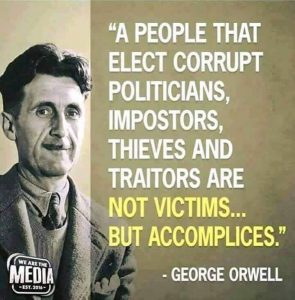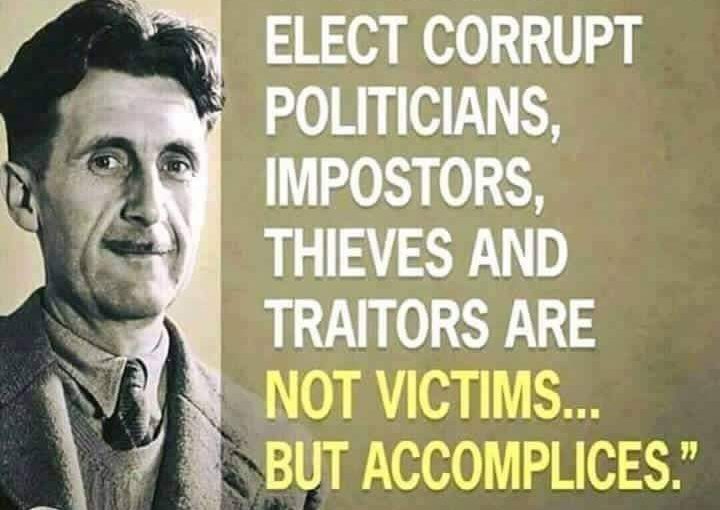 By Alagi Yorro Jallow.
By Alagi Yorro Jallow.
Fatoumatta: Oxford historian and professor of Jurisprudence, James Bryce, warned long ago. Nobody listened. He said we should be careful to do away with ‘career- salaried politicians,’ commonly referred to as ” Tangal Cheeb politicians,” a class of people whose office and shop are in the story buildings called politics better known. “Sosalasso or Taf Yengal political parties.” Bryce warned specifically that these career politicians tended “to have mercenary moves and venal habits…!”. If you want to know the import of that description, consult your Oxford English Dictionary. What do mercenaries do? What sort of people attracts an adjective very venal as venal? Shouldn’t I say so after reading news from the grapevine and on social media with awe and disbelief the systematic decimation of all we thought were sacrosanct in the Gambia?
These ‘tangal cheeb’ career political leaders have forgotten where they are coming from. They, in conspiracy with the generation that has always brought the country down the drains, have just devalued everything devaluable with shame.
There appears a swam of politicians determined to strangulate the country and continue to claim their livelihood from you and me and our children- forever. They do not have any business apart from politics. Ruling you and ruining you is their business, and they enjoy doing just that. Bryce described them as mercenaries with venal habits. Jonathan Swift in Gulliver’s Travels describes them as “pernicious odious vermin.” Very harsh? I do not think so. Vermins are snakes. I was taught very early in life the universal wisdom that you do not allow a snake a place of comfort on your ceiling. It is nobody’s friend.
Fatoumatta: I may loathe career politicians. This bit my friends do not want to hear. The Government has progressively destroyed the economy. The economy is in shambles! The executive and the legislature are conservatively slamming criminal taxes and levies on the people while unpardonably refusing to pay increase salaries but could give and take gifts for security votes. So, which one should I choose, the giant snake or the more giant snake?
However, I understand what my friends are saying. Even in this condition of two negatives, how do we turn things around? If you leave a madman with his mum’s decomposing corpse, he might barbecue it! I know someone who would counter this line of reasoning: If the madman roasts and eats his mother’s remains, hasn’t he saved the community the sweat of digging graves and burying the dead? However, the Gambia has not yet become a corpse. It has not, and we must not let it be. Furthermore, this is where I am going. In less than three months, you and I will have to choose who decides the fate of everything in this country and many of the states. We elected a president with executive powers of life and death. Suppose some people are determined to continue to pay themselves salaries for devaluing our existence. Shouldn’t we get off the horse of cynicism and see if it is possible to replace these salaried hawks without skills with a new set of birds of good omen? How?
Fatoumatta: We may not get it entirely right at once. There are steps to climb, one after the other. The first is to devalue persons who have no careers outside of politics – just as they have devalued our sustenance. The cast of our opera must be changed if there must be a symphony in the beauty of what we heard.
A fragile system escapes snapping when it is amenable to flexibility even in the business of replacing characters on its stage. Dead horses cannot win races. They never have. We need a break from salaried politicians who want to serve us forever and treat the poor as blades of grass, fodders for the hooves of their children’s horses.
During military rule and when the soldiers turned into civilian boubous, we erred in expecting that ‘soldiers with a difference’ who had risked their very lives in coups to seize power would “serve the masses.” This was all a lie! To expect political parties wholly funded by politicians and cronies to deliver outcomes and function like ideologically-based mass movements is a mistake.
These Sosalasso political Party owners seek a return on investment first and maybe trickle down gains for the people and the barest minimum of deliverables for campaign optics. The change will be slow, tedious, and incremental at this rate, with even these gains threatened by potential unrest by a fast-growing population.
Fatoumatta: What Can the Gambian people do? We have options in our emergent and fledging democracy. The periphery “Taf Yengal or Sosalaaso political parties” to join the established political parties and create a popular critical mass for pro-people politics and policy-making from within them. (This would be like a hostile takeover as new actors “possess” these ideologically empty husks called parties and turn them in new directions.) Alternatively, create new political movements based on new ideas and self-funded organizations, propagate their ideas, gain a following and seek power. Both approaches are valid, not mutually exclusive. There is room enough for both options. However, they all require hard work, patience, and strategy.
Partisan tribalism and selective amnesia often blind us to the moral symmetry of the political class. However, if we are to make progress – if Gambians are to stop being serially hoodwinked by the current crop of “Tangal Cheeb politicians” – we must dispense with the myth that our multi-party system features a Manichean divide, a political party of angels is ranged against a political party of demons. The good, the bad, and the ugly men and women of our politics are found in both parties. Thus, the investment of our allegiances and mental and emotional energies should be on a case-by-case basis weighing the merits of each circumstance and the antecedents of the actors involved and then acting following good conscience. No party or politician is worthy of uncritical adulation.
Fatoumatta: Some of these peripheries, “Taf yengal or Sosalasso political parties,” are not political parties. Some of the “Tangal Cheeb” party leaders are not transformative, visionary, and charismatic in leadership; they are special purpose vehicles for state capture funded by some godfathers.
Mass membership of such “Taf Yengal or Sosalasso” parties is just an afterthought. They do not need members. It is why they can never indeed be answerable to the people. It is hypocritical to condemn corruption and support parties funded by state capture and graft 20 political parties with 2 million.
Elections are primarily transactional affairs, especially at the grassroots, and Campaigns are bazaars. Voting is often induced by gratification. Poverty is a problem. The more insufficient the people, the cheaper their votes hence the utility of rice, bread, and allied forms of stomach infrastructure.
The urban middle class is often preoccupied with economically securing its precarious existence to engage in political activism. Our elites ensure that we are too busy hustling for survival (rent, school fees, battling hunger, etc.) to interrogate them properly. The other issue is that most liberal democracies established universal education, employment, and social security before universal suffrage. Only reasonably educated and socioeconomically secure citizens can be a vigilant Civil society and electorate and make truly free voting choices.
The Gambia has universal suffrage but no universal education, employment, or social security and thus an electorate vulnerable to gratification. What kind of campaign messaging will work for the most economically insecure, largely poorly educated/semi-literate/illiterate voters?
Fatoumatta: The question remains why Gambian politicians are so allergic to free and open democratic contests by taking the route of the consensual arrangement instead of simply enabling an open and fair competition among peers when political parties showed that some within its ranks had not thought deeply enough about what they are meant to be progressing from or where they are meant to be progressing to. Some exponents of “change” clearly have not reflected on what exactly is meant to have changed. Godfatherism and surreptitious anointments by secret party conclaves are dead.
Other political parties have tried to invoke the supremacy of the party. However, party discipline is a tenuous concept where overarching ideological bonds do not define parties themselves. Machiavellian self-interest is the dominant political paradigm. When such interests coincide as they did in 2016 for Yahya Jammeh’s eviction from the presidency, it can give the impression of party operatives loyally walking in lockstep and dancing to the same drumbeat, but this is an illusion. Once the common enemy in Yahya Jammeh left the scene, the politics of sharing the spoils of victory was always going to severely test the Sosalasso party’s coherence and expose its internal contradictions as a coalition of convenience.
Fatoumatta: This does not make Gambian democracy hopeless or futile. Just more challenging. It calls for much strategic thinking and planning. There is also an apathetic middle class that cannot be bothered. The huge non-voting population of eligible voters has to be mobilized. Politics is criminally expensive here, and people who have earned their money through honesty and hard work are naturally reluctant to join in.
What do we need? We need transformative, visionary, and charismatic leaders belonging to political parties which contain specific ideas on what it considers the best form of Government and the best economic system. Sometimes the same ism to identify both an ideology and one of its main ideas and campaign finance reform to open up the political space and free us from rent-seeking monopolies posing as parties. The question remains why Gambian politicians are so allergic to release and open democratic contests by taking the route of the consensual arrangement instead of simply enabling an open and fair competition among peers when political parties showed that some within its ranks had not thought deeply enough about what they are meant to be progressing from or where they are meant to be progressing to. Some exponents of “change” clearly have not reflected on what exactly is meant to have changed. Godfatherism and surreptitious anointments by secret party conclaves are dead.
Fatoumatta: Other political parties have tried to invoke the supremacy of the party. However, party discipline is a tenuous concept where overarching ideological bonds do not define parties themselves. Machiavellian self-interest is the dominant political paradigm. When such interests coincide as they did in 2016 for Yahya Jammeh’s eviction from the presidency, it can give the impression of party operatives loyally walking in lockstep and dancing to the same drumbeat, but this is an illusion. Once the common enemy in Yahya Jammeh left the scene, the politics of sharing the spoils of victory was always going to severely test the Sosalasso party’s coherence and expose its internal contradictions as a coalition of convenience.

